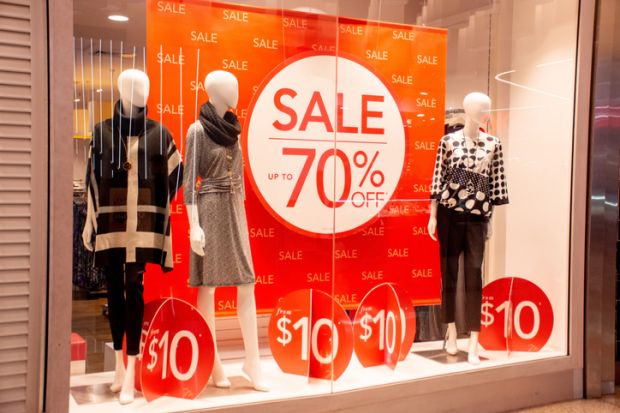The biggest ever “shake-up” of university fees proved “largely ineffectual” in influencing students’ subject choice, Australian research has confirmed.
A University of Melbourne study has found that the 2020 Job-ready Graduates (JRG) reforms, which slashed fees in “national priority” fields while more than doubling them in the politically out-of-favour humanities, caused just 1.5 per cent of students to change their course preferences.
The conclusion is based on an analysis of bachelor’s degree applications lodged by about 720,000 people over nine years. Lead author Max Yong, an economist, said the team’s analysis of the entire sample had confirmed earlier findings based on much smaller subsets of the data.
Mr Yong said JRG had made unprecedented changes to course prices across different fields of study. The then federal government had explained the reforms as “a price signal to encourage people to study in areas of expected employment growth”.
“This supposedly massive effect on the future labour market has come out as a 1.5 per cent change,” said Mr Yong, who has been working with the university’s economics department. He said the Universities Accord panel should take note as it considered its recommendations around course fees and subsidies.
“If [changes to] university fees don’t change behaviour, then let’s not use them to that effect,” he said. Instead, fees should be linked to future earnings so that the biggest costs went to those who obtained most private benefit from their studies and had most capacity to repay.
The research has emerged ahead of an inflation-fuelled 7.8 per cent increase in university fees, which will see humanities, law and business students paying A$16,323 (£8,563) in 2024.
Mr Yong said it was possible that rising concern about graduate debt could reduce young people’s appetite for university study. His study was unable to shed light on this because it had only tracked trends in course choice, not overall demand.
But his research found that older students were more sensitive than school leavers to changes in university fees. Mr Yong said 17-year-olds were “very shielded” from fee changes in a deferred loan scheme such as Australia’s.
“Let’s be honest – they’re probably not thinking about it and they’re probably not fully informed about it,” he said. “Even if they are, it’s so far down the track that it’s not that important to them at the time of the decision.”
The study also found that women had been almost twice as responsive to the fee changes than men. Mr Yong said a 2021 study of Dutch students had uncovered similar results.
He said women “may be more sensitive to the universities’ marketing campaigns” than men. The paper suggests that women might also be “less constrained in terms of their field-of-study choices” and consequently more amenable to price signals.
Counter-intuitively, the study found that students from disadvantaged backgrounds had been no more responsive to the fee changes than their well-heeled counterparts. Mr Yong said that while battlers were often perceived as more “debt-averse” than people from affluent areas, evidence about this was inconclusive.
The study also found little evidence that universities had maximised their teaching revenue by “increasing their enrolments in fields where they received more funding”. This could reflect “uncertainty” during the pandemic and the “difficulties in altering a specialised workforce in the short run”, the paper suggests.




